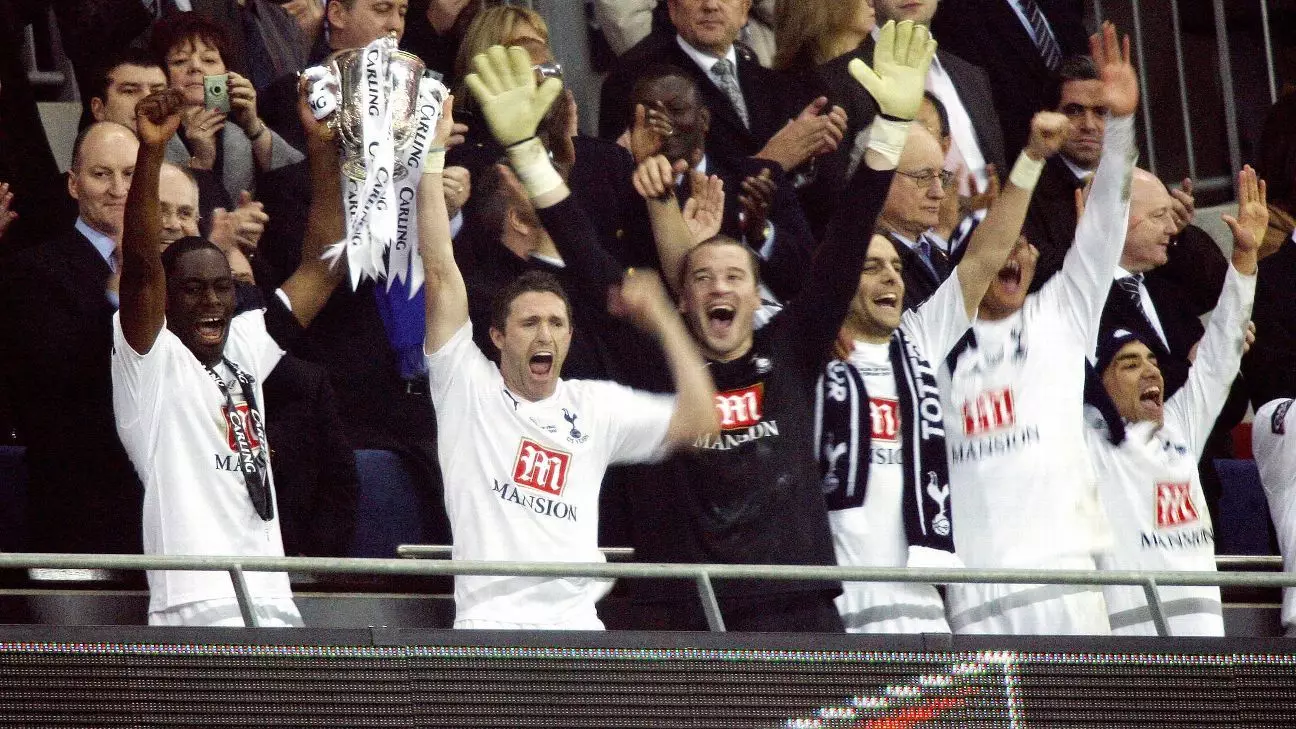Tottenham Hotspur Football Club is a name synonymous with passion, history, and a rich footballing tapestry. Yet, as the years have rolled by, a glaring absence has cast a shadow over their modern identity: a trophy drought that many fans and analysts argue has become the defining narrative of the club’s recent existence. Since Juande Ramos orchestrated an impressive triumph in the 2008 Carabao Cup, the club has circled the drain of mediocrity while the yearning for silverware looms large over every managerial appointment.
The backdrop against which Spurs operate is, intriguingly, a history of remarkable accomplishments. The 1960s marked the zenith of Tottenham’s prowess, with the club clinching the league title and making history as the first English team to secure the ‘double’—the League title coupled with the FA Cup—in the 20th century. Their legacy includes an impressive haul of notable trophies: eight FA Cups, four Carabao Cups, and two UEFA Cups, evidencing their significant contributions to English football. However, as we delve into the decades that followed their glorious 60s, it becomes evident that inconsistency has plagued the club, stifling their attempts to rise to the upper echelons of English football once again.
The stark contrast between Tottenham’s past successes and current performance suggests a complex web of issues that have continued to hinder their progress. Competing teams, tactical evolutions in football, and inconsistent managerial strategies have all contributed to today’s dilemma. Despite having moments of brilliance, the club has often relied on fleeting runs in knockout tournaments while their league campaigns rarely garner the same attention, hinting at a failure to cultivate a winning mentality throughout the season.
Fast-forward to contemporary times, and Tottenham’s quest for trophies remains largely unfulfilled. The absence of triumphs has increasingly weighed upon the shoulders of the club’s managers, none more so than the recently appointed Ange Postecoglou. The loaded expectations surrounding him are palpable as he embarks on what many hope will be a journey back to competitive success. While Postecoglou is celebrated for his attacking philosophy honed through experience in Australia, Japan, and Scotland, the pressure to deliver immediate results hangs shadow-like over his appointment.
The last piece of silverware secured by Tottenham remains the 2008 Carabao Cup—an event that now feels like a distant memory for the club’s fervent supporters. The emotional rollercoaster of that final against Chelsea encapsulates the nature of their misfortunes since. After Didier Drogba’s opener, Spurs clawed back the game through Dimitar Berbatov’s penalty. Yet, it was Jonathan Woodgate’s extra-time heroics that sealed the 2-1 victory, a symbolic highlight in a managerial reign that otherwise floundered. Ramos’s subsequent dismissal at the start of the following season emphasized the fragility surrounding Spurs whenever they experience a setback.
As we examine the recent pursuits of silverware, it’s essential to recognize the overwhelming pressure that comes with trying to break a trophy-less cycle. Under managers like Mauricio Pochettino, Tottenham flirted tantalizingly with success but ultimately fell short. Pochettino’s tenure peaked dramatically with a Champions League final appearance against Liverpool in 2019, a match that exposed the club’s lingering underachievement. While a valiant effort in Europe heightened expectations, it ultimately ended in disappointment, forcing fans to reevaluate their hopes once again.
In contrast to their rich history, Tottenham’s modern narrative has been one of near misses. They have yet to claim the Premier League title, coming closest in the 2016-17 season under Pochettino’s stewardship when their ambition came to naught against Antonio Conte’s Chelsea. Each unsuccessful campaign amplified the pressure on subsequent managers, thus morphing into a cycle of expectation buoyed by historical successes but plagued by a contemporary grind of disappointment.
The challenge for Tottenham Hotspur is to reconcile its illustrious past with a resilient future. As Postecoglou embarks on this journey, his task encompasses more than winning trophies; it also involves fostering a strong club identity heading into the future. By nurturing a winning mentality from within, creating a blend of experienced players and emergent talents, and adopting a cohesive strategy, Tottenham can hope to transform the narrative of missed opportunities into one of aspirations fulfilled.
Ultimately, breaking the drought will demand not only tactical acumen but an unwavering belief from club management, players, and the loyal fanbase. The road may be fraught with hardship, but with history as both a beacon and a reminder, the Spurs must rise once more from the ashes of their trophy-less purgatory to embrace the glory they so richly deserve.


Leave a Reply